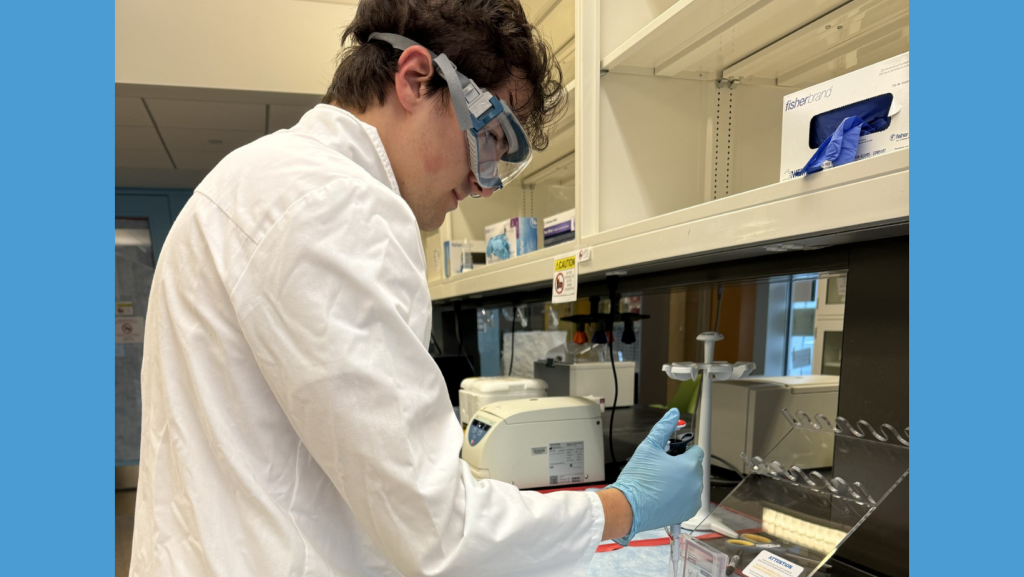Recent graduate Kohen Goble balanced a major in chemistry, a minor in applied sciences and engineering and two undergraduate research assistant positions while at Carolina.

When Kohen Goble was in high school, he and his buddies would meet in a friend’s garage and conduct experiments on a variety of things, including capsaicin, a molecule found in chili peppers and responsible for the fiery sensation you get when you eat spicy foods. Their tools were rudimentary—glassware, fresh chili peppers, some ethanol—but their enthusiasm rivaled that of scientists on the verge of a big discovery.
“Our mixture got so concentrated in the oil that when we uncapped the vial, it hurt just to be in the room with it because it was so spicy,” said Goble, who recently graduated with a UNC bachelor’s degree in chemistry and a minor in applied sciences and engineering. “It was fun and exciting to make up our own experiments and show them to our teacher.”
That first taste of materials engineering inspired a fascination with basic research on experiments they planned to conduct. “It sparked my curiosity in science at a fundamental level,” he said, “being able to see some of the things that we were learning in class.”
One of Goble’s favorite courses in the APS minor was taught by the late Zijie Yan, whom he called a mentor. In “Engineering Materials: Properties, Selection and Design” (APPL 462), he delved into the various physical, chemical and mechanical properties that differentiate classes of polymers, ceramics and metals.
“Leaving the class, I often thought deeper about the things I have taken for granted, such as the alloy in my kitchen knife’s blade or the economic-environmental balance to be considered when using one choice of adhesive over another,” he said.
In 2020, Goble enrolled at UNC-Chapel Hill and quickly immersed himself in the science, becoming an undergraduate research assistant in the Brunk Lab, focusing his efforts on extrachromosomal DNA (ecDNA), which are molecules that exist independently from chromosomes within a cell’s nucleus. He investigated the role of ecDNA in various biological processes, including triple negative breast cancer, an especially aggressive cancer characterized by the absence of three hormone receptors: estrogen, progesterone and human epidermal growth factor 2.
He also was an undergraduate research assistant in the Zhukhovitskiy group, making new building blocks called monomers from furan, a type of organic compound that has a ring structure made of four carbon atoms and one oxygen atom. These monomers are used to test a new kind of chemical reaction involving metals and commonly found in various natural and synthetic materials, including some plastics and pharmaceuticals.
As a technology intern at Eastman, he worked in a lab that studies polymers, which are materials like plastics. Using the LabVIEW programming language, his main job was to improve a computer program that controls a special microscope to analyze polymer interactions.
“I analyzed different types of polymers to see how they looked and behaved when they were heated,” said Goble, who presented his research to the entire company. “I also learned how to use other machines to test the polymers’ properties, like how much they weigh when they burn.”
This fall, Goble starts a Ph.D. in material science and engineering at NC State but, in the meantime, he plans to stay at UNC through the summer to implement his honors thesis project, which involves the automation ecDNA image analysis across multiple different cancer cell lines using deep-learning methods.
“Ideally, I would love someday to either work at a small company startup,” said Goble, “or a corporation to be a group leader or run a lab.”
By David DeFusco, department of applied sciences
